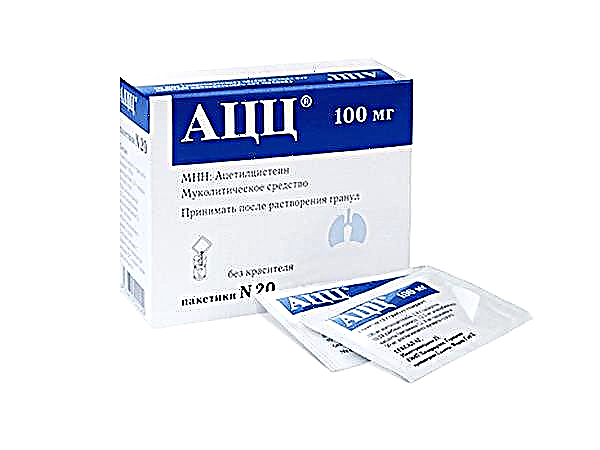
The popular herb parsley is a frequent guest on our table. It is loved as a delicious and aromatic seasoning for salads, first and second courses. It is often used in folk medicine as a diuretic and anti-inflammatory agent. Do you need to stop eating parsley during pregnancy? This article will tell you.

Benefits for pregnant women
Parsley is a greenery around which there are many rumors and myths. Some are sure that it is categorically impossible for pregnant women, others believe that it is not only possible, but also necessary. Indeed, this green is ambiguous.
Its chemical composition and useful properties are not much inferior, and in many respects are ahead of many vegetables and fruits. For most Russians, regardless of the region of residence, parsley is a native product that grows right next door, and for this reason, experts consider it very useful for the nutrition of women during pregnancy.

These greens are rich in the following beneficial substances:
- vitamin C participates in maintaining the elasticity of blood vessels;
- folic acid necessary for the correct and correct formation of the central nervous system of the fetus;
- potassium important for maintaining correct water and mineral metabolism, optimal blood pressure;
- calcium necessary for the mother's nervous system, hematopoiesis and the process of mineralization of the bones of the fetal skeleton;
- magnesium needed for the metabolism and good mood of the expectant mother;
- in addition, parsley contains iron, vitamin A, phosphorus and fluoride.

But the main value in the composition of the plant are essential oils. Almost a tenth of the plant consists of them. The vitamin and mineral composition of the plant is superior in quantitative values to many vegetables and fruits. All parts of parsley - flowers, roots and leaves - have a pleasant taste. The recognizable aroma of greenery is given by a special substance in the composition of essential oil - apiol.
Parsley has long been recognized in medicine as an anti-inflammatory, diuretic. It was used for rinsing and chewing to strengthen teeth and gums, and it was believed that parsley was able to maintain vision. It is useful for an appetite disorder, as it increases it, and also participates in the normalization of digestion.
Two centuries ago, parsley was put on the guard of women's health. The seeds of the plant began to be used to obtain drugs that help treat dysmenorrhea. Eating parsley reduces sweating, promotes weight loss by removing salts and excess fluid from the body. Parsley juice is considered by doctors to be an excellent aid to normalize the adrenal cortex. It's believed that the plant strengthens the immune system, has a beneficial effect on the condition of bones and joints... With the help of parsley, traditional medicine advises to lower the temperature.
Parsley and dill are not officially prohibited during pregnancy. But, as mentioned above, this greenery during pregnancy is very ambiguous and full of unpleasant surprises.

Potential harm and contraindications
The World Health Organization presents in monographs the results of clinical trials of drugs based on parsley. Experiments on laboratory animals have shown that parsley juice and root enhances the tone of the smooth muscles of the uterus, intestines and bladder. If everything is clear with the intestines and the bladder - due to the tone, normalization of digestion and frequent urination is achieved, then the tone of the uterus is a dangerous condition, especially in the early stages of pregnancy.
In 2011, the use of essential oil and parsley seeds in the manufacture of dietary supplements was officially banned all over the world. Biologically active food additives are not a medicine, but the effect of these parts of plants is pronounced, medicinal.
It does not cause concern if a woman eats fresh herbs in small quantities, for example, adding them to a salad or soup. However, more concentrated forms - juice, essential oil - should not be used while waiting for a child. In this form, parsley is harmful.

In the later stages, some, according to reviews, try to stimulate labor with the help of a plant. As a stimulant of labor, parsley is not effective, it cannot bring childbirth closer, since it does not affect the hormonal background of a woman.
In a decoction, it is worth taking parsley infusion only if there is a medical indication and after a mandatory consultation with your doctor. As a seasoning, the use of parsley is allowed, but within reasonable limits.
Parsley should be avoided by pregnant women who suffer from urolithiasis and hypotension... In the first case, it is possible to set stones in motion and injure the ureters, in the second, a decrease in pressure and a worsening of the condition of a pregnant woman are possible. The optimal amount is considered to be 1-2 pinches of herbs per day as a seasoning for dishes. External use of the herb during pregnancy is not limited.


How to use correctly
Do not eat parsley on its own on an empty stomach. This is important at any time. The safest way to use it is to add it to dishes as a seasoning.
If cystitis has begun or edema is tormented, and your doctor does not mind that you use traditional medicine in the second and third trimester, you should know how to properly prepare a decoction with pronounced medicinal properties. remember, that in the first trimester, it is better to abstain completely from such forms of parsley.
Prepare for external use a decoction that will benefit from acne, wounds and burns, wrinkles and increased skin pigmentation. The recipe is very simple - for 50 grams of fresh herbs, you need to take two glasses of water and boil everything thoroughly for a quarter of an hour. The liquid is cooled, filtered, poured into ice molds and sent to the freezer. After a few hours, you have an excellent facial skin care product at your disposal - rub these ice cubes on your skin in the morning, and it will quickly tone up and regain health. To treat wounds and burns, you do not need to freeze the broth.

With increased pigmentation, which many pregnant women suffer from due to the special hormonal background, you should mix dill with parsley and add cilantro. A tablespoon of crushed raw materials is poured with a glass of boiling water, brewed, cooled and the resulting liquid is filtered. Then you can make lotions with it on problem areas - age spots will not be so noticeable. The same remedy is great for oily skin from acne.
With cystitis and edema it is recommended to chop fresh herbs and pour two teaspoons of plant materials with a glass of freshly boiled water. After insisting for a quarter of an hour, the liquid is filtered, cooled to room temperature. The finished broth can be taken half an hour before meals, a quarter of a glass 2-3 times a day.
Be extremely careful - in the early stages, such drinks should not be taken. There are safer remedies, including pharmacy ones, that will help to cope with cystitis or swelling, they will be prescribed by a doctor. Parsley essential oil, seeds cannot be used at any time during pregnancy.
When you buy parsley, be sure to wash it thoroughly. Do not refrigerate herbs for too long. The excess can be crushed and dried, and then stored in a paper bag - in winter it will be an excellent seasoning for the table.




